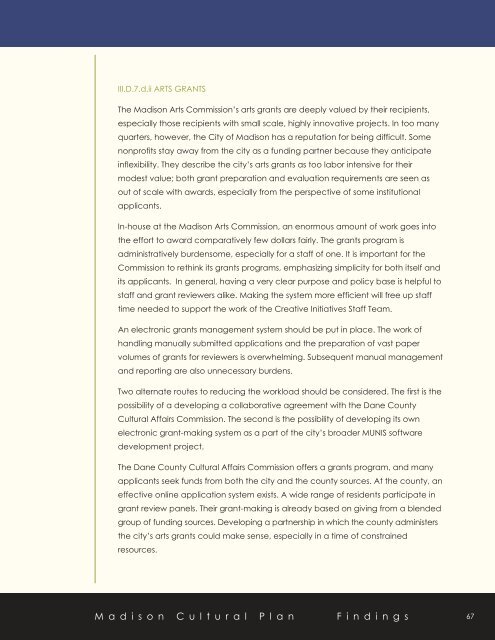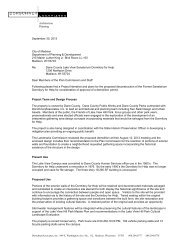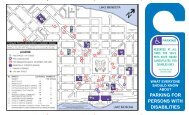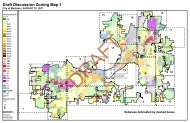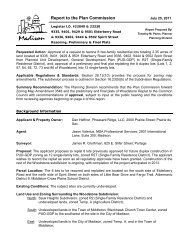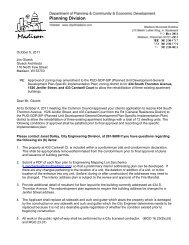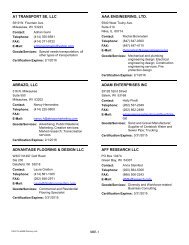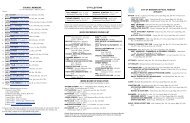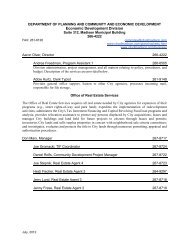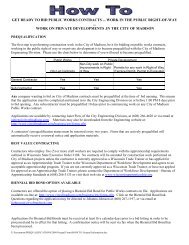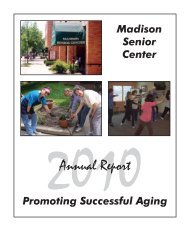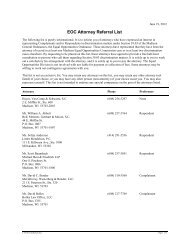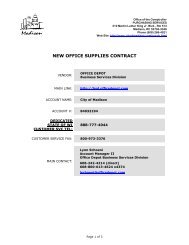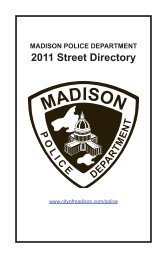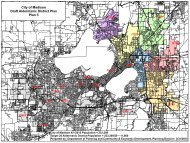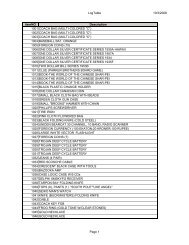Madison Cultural Plan 2011 - City of Madison, Wisconsin
Madison Cultural Plan 2011 - City of Madison, Wisconsin
Madison Cultural Plan 2011 - City of Madison, Wisconsin
You also want an ePaper? Increase the reach of your titles
YUMPU automatically turns print PDFs into web optimized ePapers that Google loves.
III.D.7.d.ii ARTS GRANTS<br />
The <strong>Madison</strong> Arts Commission’s arts grants are deeply valued by their recipients,<br />
especially those recipients with small scale, highly innovative projects. In too many<br />
quarters, however, the <strong>City</strong> <strong>of</strong> <strong>Madison</strong> has a reputation for being difficult. Some<br />
nonpr<strong>of</strong>its stay away from the city as a funding partner because they anticipate<br />
inflexibility. They describe the city’s arts grants as too labor intensive for their<br />
modest value; both grant preparation and evaluation requirements are seen as<br />
out <strong>of</strong> scale with awards, especially from the perspective <strong>of</strong> some institutional<br />
applicants.<br />
In-house at the <strong>Madison</strong> Arts Commission, an enormous amount <strong>of</strong> work goes into<br />
the effort to award comparatively few dollars fairly. The grants program is<br />
administratively burdensome, especially for a staff <strong>of</strong> one. It is important for the<br />
Commission to rethink its grants programs, emphasizing simplicity for both itself and<br />
its applicants. In general, having a very clear purpose and policy base is helpful to<br />
staff and grant reviewers alike. Making the system more efficient will free up staff<br />
time needed to support the work <strong>of</strong> the Creative Initiatives Staff Team.<br />
An electronic grants management system should be put in place. The work <strong>of</strong><br />
handling manually submitted applications and the preparation <strong>of</strong> vast paper<br />
volumes <strong>of</strong> grants for reviewers is overwhelming. Subsequent manual management<br />
and reporting are also unnecessary burdens.<br />
Two alternate routes to reducing the workload should be considered. The first is the<br />
possibility <strong>of</strong> a developing a collaborative agreement with the Dane County<br />
<strong>Cultural</strong> Affairs Commission. The second is the possibility <strong>of</strong> developing its own<br />
electronic grant-making system as a part <strong>of</strong> the city’s broader MUNIS s<strong>of</strong>tware<br />
development project.<br />
The Dane County <strong>Cultural</strong> Affairs Commission <strong>of</strong>fers a grants program, and many<br />
applicants seek funds from both the city and the county sources. At the county, an<br />
effective online application system exists. A wide range <strong>of</strong> residents participate in<br />
grant review panels. Their grant-making is already based on giving from a blended<br />
group <strong>of</strong> funding sources. Developing a partnership in which the county administers<br />
the city’s arts grants could make sense, especially in a time <strong>of</strong> constrained<br />
resources.<br />
<strong>Madison</strong> <strong>Cultural</strong> <strong>Plan</strong> Findings<br />
67


